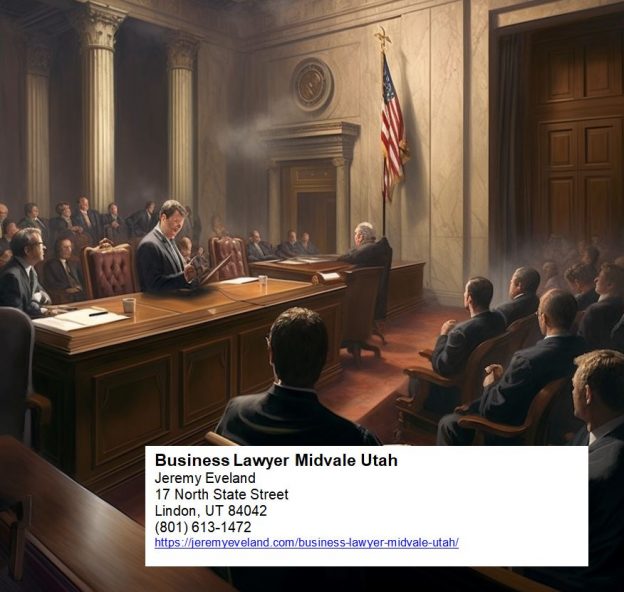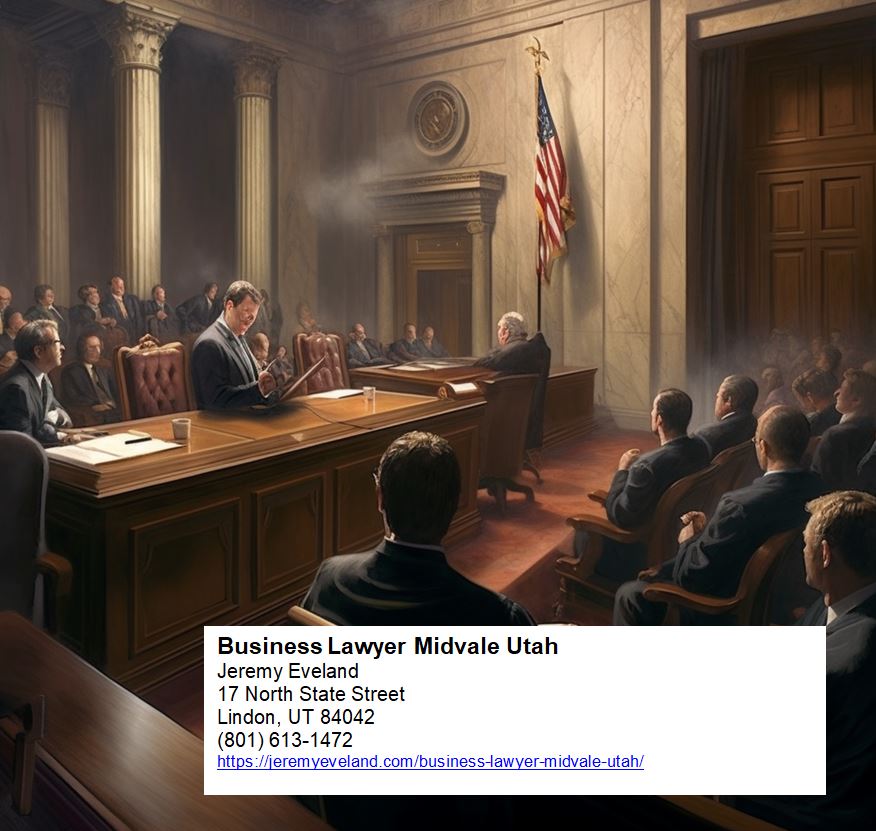In the realm of matrimonial law, the unforeseen event of a spouse’s passing can have significant implications in terms of financial matters and asset distribution. To navigate these sensitive and complex legal matters, individuals should be proactive by considering the implementation of a prenuptial agreement. This legally binding document, known as a prenup, not only safeguards assets and avoids prolonged legal battles but also provides a clear framework for protecting the interests of both parties involved. By eradicating uncertainty, a prenuptial agreement in the event of a spouse’s death serves as a valuable tool in ensuring a smooth transition of wealth and property. In this article, we will examine the importance of prenuptial agreements in the context of a spouse’s passing, offering invaluable insights for individuals seeking clarity and proactive solutions in their marital relationships.

What is a Prenuptial Agreement?
A prenuptial agreement, often referred to as a prenup, is a legal contract entered into by a couple before they get married or enter into a civil partnership. It is designed to establish the rights and obligations of each party in the event of a divorce, separation, or the death of one spouse. While prenuptial agreements are often associated with protecting assets in case of divorce, they can also include provisions that address the distribution of assets in the event of the death of a spouse.
Definition
A prenuptial agreement is a legally binding contract that outlines the division of assets, debts, and responsibilities between spouses in the event of a divorce or death. It serves as a written record of the couple’s intentions and provides a framework for resolving disputes and protecting both parties’ rights.
Purpose
The primary purpose of a prenuptial agreement is to provide clarity and certainty in the event of a divorce or the death of a spouse. By setting forth the terms of property division, alimony, and other financial matters, a prenup helps to avoid potential conflicts and legal battles. It allows couples to make decisions about their assets and financial responsibilities freely, without the emotional stress and turmoil that often accompanies the breakdown of a relationship.
Legality
Prenuptial agreements are legally recognized in many jurisdictions around the world, although the laws governing their validity and enforceability may vary. Most jurisdictions require certain elements to be present for a prenup to be considered legally valid, such as voluntary consent, full disclosure of assets and liabilities, and the absence of coercion or duress. It is essential to consult with an attorney to ensure that a prenuptial agreement complies with the specific laws and requirements of the jurisdiction in which it will be enforced.
Importance of Including Death of Spouse in a Prenuptial Agreement
When creating a prenuptial agreement, it is crucial to consider the provisions related to the death of a spouse. Including these provisions in the agreement can serve several essential purposes.
Ensures Distribution of Assets According to the Couple’s Wishes
By explicitly stating how assets should be distributed in the event of a spouse’s death, a prenuptial agreement provides certainty and peace of mind. It allows the couple to determine the division of assets based on their individual and joint preferences rather than being subject to default laws that may not align with their wishes. This ensures that the surviving spouse receives the intended inheritance and that any specific bequests are honored.
Protects Each Spouse’s Rights and Interests
Including provisions related to the death of a spouse in a prenuptial agreement helps protect the interests and rights of both parties. It can establish safeguards to prevent any undue influence or manipulation in the event of a spouse’s death. By clearly defining each spouse’s rights and obligations, the agreement can serve as a guide for the surviving spouse and help prevent disputes or disagreements.
Provides Financial Security
One of the key benefits of including provisions for the death of a spouse in a prenuptial agreement is the financial security it can provide. The agreement can outline the distribution of assets, including properties, investments, and financial accounts, ensuring that the surviving spouse is adequately provided for. It can also address issues such as life insurance policies, retirement accounts, and other financial arrangements to secure the financial stability of the surviving spouse.
Avoids Potential Legal Disputes
Including provisions related to the death of a spouse in a prenuptial agreement can help prevent future legal battles or disputes between family members. By clearly defining the distribution of assets, debts, and other financial matters, the agreement can minimize the likelihood of disagreements and provide a clear and concise guide to follow. This can save both time and money and help preserve family relationships during a difficult time.
Key Considerations in Including Death of Spouse in a Prenuptial Agreement
When including provisions for the death of a spouse in a prenuptial agreement, there are several critical aspects to consider to ensure the agreement is comprehensive and effective.
Disclosure of Assets and Liabilities
Full and accurate disclosure of each spouse’s assets and liabilities is crucial when creating a prenuptial agreement. This includes providing a complete inventory of properties, investments, financial accounts, and any outstanding debts. By ensuring that all assets and liabilities are properly disclosed, both parties can make informed decisions regarding the division of assets in the event of a spouse’s death.
Determining Distribution of Assets
In a prenuptial agreement, it is essential to clearly outline how the assets will be distributed upon the death of a spouse. This may include specifying which assets will be considered separate and which will be deemed marital or community property. The agreement should also address any specific bequests or gifts, such as heirlooms or family businesses, and how they will be handled.
Provisions for Alimony and Inheritance
In addition to addressing the division of assets, a prenuptial agreement should consider provisions for alimony or spousal support in the event of a spouse’s death. This can include specifying whether the surviving spouse will be entitled to ongoing financial support and, if so, the duration and amount of such support. The agreement should also address any inheritance rights and provide for the distribution of assets to children or other heirs.
Guardianship of Children
If the couple has children or plans to have children in the future, it is crucial to include provisions for the guardianship of children in the prenuptial agreement. This can determine who will have legal custody of the children and how the financial support and care of the children will be addressed in the event of a spouse’s death. Considering these matters in the prenuptial agreement can ensure that the best interests of the children are protected.
Review and Update
A prenuptial agreement is not a one-time document. It is essential to review and update the agreement periodically, particularly when significant life events occur, such as the birth of a child, the acquisition of new assets, or a change in financial circumstances. Regularly reviewing the agreement ensures that it remains up to date and takes into account any changes in the couple’s circumstances or intentions.
Legally Required Elements in a Prenuptial Agreement
To ensure the enforceability of a prenuptial agreement, certain legally required elements must be present. These elements may vary depending on the jurisdiction, but some common elements include:
Voluntary Consent
Both parties must enter into the prenuptial agreement voluntarily and without any coercion or duress. This means that neither party should be compelled or forced to sign the agreement against their will. Each party should have sufficient time and opportunity to review and consider the terms of the agreement before signing.
Full and Fair Disclosure
For a prenuptial agreement to be valid, there must be full and fair disclosure of each spouse’s assets, liabilities, and financial circumstances. This means that each party must provide complete and accurate information about their financial situation. Without full disclosure, the agreement may be deemed unenforceable, as one party may have been deprived of the opportunity to make informed decisions.
No Coercion or Duress
A prenuptial agreement must be entered into freely and without any coercion or duress. This means that neither party should be subjected to pressure, threats, or manipulation to sign the agreement. If one party can demonstrate that they signed the agreement under duress, the agreement may be invalidated.
Consideration
For a prenuptial agreement to be enforceable, there must be consideration or some form of exchange between the parties. This can be anything of value, such as the division of property, the assumption of debts, or the agreement to provide ongoing financial support.
Written Form
A prenuptial agreement must be in writing to be legally valid. Verbal agreements or informal understandings are generally not enforceable. The written agreement should be signed by both parties and, in some jurisdictions, may need to be notarized or witnessed by a third party.
Consulting with an Attorney
When considering a prenuptial agreement, it is highly recommended to consult with an experienced family law attorney. While it is possible to create a prenuptial agreement without legal assistance, working with an attorney can provide several benefits.
Benefits of Professional Legal Advice
Family law attorneys specialize in guiding couples through the process of creating prenuptial agreements. They can provide invaluable advice on the legal aspects of the agreement and ensure that all necessary provisions are included. Attorneys can also help navigate complex legal terminology and ensure that the agreement complies with local laws and requirements.
Drafting and Negotiating Terms
An attorney can help draft the prenuptial agreement, ensuring that it is clear, comprehensive, and tailored to the couple’s specific needs. They can also assist in negotiating the terms of the agreement, facilitating discussions between both parties to reach a mutually agreeable resolution. This can help minimize conflicts and ensure that both parties’ concerns and interests are addressed.
Choosing the Right Attorney
When selecting an attorney to assist with a prenuptial agreement, it is crucial to choose someone with expertise in family law and prenuptial agreements. Consider seeking recommendations from trusted sources, researching the attorney’s experience and credentials, and scheduling consultations to discuss your needs and goals.
Understanding Local Laws
Family law varies from jurisdiction to jurisdiction, and it is essential to understand the specific laws and requirements that apply to your situation. An attorney can provide knowledge and guidance on the local laws related to prenuptial agreements, ensuring that all legal requirements are met and that the agreement will be enforceable in the event of a dispute.
Common Misconceptions about Prenuptial Agreements
There are several misconceptions and misunderstandings surrounding prenuptial agreements that are important to address.
Only for the Wealthy
Contrary to popular belief, prenuptial agreements are not only for the wealthy. While high-net-worth individuals often use prenups to protect substantial assets, anyone can benefit from having a prenuptial agreement. Prenups can address a wide range of financial matters, including debts, business interests, retirement accounts, and future inheritances.
Indicates a Lack of Trust
Some people assume that creating a prenuptial agreement signifies a lack of trust in the relationship. However, a prenup is not about distrust but rather about proactive planning. It allows couples to have open and honest conversations about their financial expectations and ensures that both parties’ rights and interests are protected.
Predicting Divorce
Another common misconception is that creating a prenuptial agreement predicts the failure of the marriage. While it is true that a prenup addresses the possibility of a divorce, it does not mean that the marriage is doomed. Instead, it provides a practical framework for addressing financial matters in the event of a breakdown in the relationship, which can actually reduce conflict and make the process smoother if divorce does occur.
Limiting Rights and Freedom
Some individuals worry that signing a prenuptial agreement will limit their rights and freedom in the event of a divorce or death. However, when carefully drafted, a prenuptial agreement can provide clarity and protection for both parties. It allows couples to make decisions about their assets and financial responsibilities based on their own preferences, rather than being subject to default laws that may not align with their wishes.

Prenuptial Agreement vs. Will
While a prenuptial agreement and a will may address some similar issues, they serve different purposes and have distinct scopes.
Different Purposes and Scope
A prenuptial agreement primarily deals with financial matters and the division of assets in the event of a divorce or death. It provides guidance for issues such as property division, alimony, and financial support. On the other hand, a will outlines the distribution of assets and the appointment of guardianship for minor children after an individual’s death.
Complementary Legal Documents
Although a prenuptial agreement and a will address different aspects, they can be complementary legal documents. By including provisions related to the death of a spouse in a prenuptial agreement, couples can establish guidelines for asset distribution that can work in conjunction with the provisions outlined in a will. This ensures that the intentions of the couple are clear and reduces the potential for conflict and confusion.
Understanding the Distinctions
While a prenuptial agreement can include provisions related to the death of a spouse, it is essential to understand that it cannot replace a will or other estate planning documents. A will covers a broader range of issues, including the appointment of executors, the distribution of personal belongings, and the establishment of trusts for minor children. It is crucial to work with an estate planning attorney to ensure that all estate planning needs are adequately addressed.
Effects of Divorce on a Prenuptial Agreement with Death of Spouse Clause
In the event of a divorce, a prenuptial agreement with provisions related to the death of a spouse can still have significant effects. However, it is important to understand how the agreement may be impacted.
Surviving Spouse’s Rights
If a prenuptial agreement includes provisions for the division of assets in the event of a spouse’s death, those provisions may not apply in the event of a divorce. Generally, the enforceability of a prenuptial agreement is dependent on the specific laws of the jurisdiction and the circumstances under which the agreement was entered into. It is crucial to consult with an attorney to determine the potential impact of a divorce on the terms of a prenuptial agreement.
Modifying or Invalidating the Agreement
A divorce can provide grounds to challenge or modify the terms of a prenuptial agreement. Both parties may seek to invalidate the agreement or request modifications based on changed circumstances, unfairness, or other factors. The court will consider the specific circumstances of the divorce and the provisions outlined in the agreement to determine the appropriate course of action.
Legal Procedures and Considerations
In the event of a divorce, the prenuptial agreement will need to be reviewed and analyzed by both parties and their respective attorneys. This may involve negotiations to determine the enforceability of the agreement and the division of assets. Legal procedures and considerations will vary depending on the specific jurisdiction, so consulting with an attorney is essential to navigate through the divorce process effectively.

Challenging the Validity of a Prenuptial Agreement in Case of Death
If one spouse passes away and the surviving spouse wishes to challenge the validity of a prenuptial agreement, several potential grounds may be considered.
Lack of Voluntary Consent
One ground for challenging the validity of a prenuptial agreement is alleging that one party did not give voluntary consent. If it can be proven that a spouse was coerced or forced into signing the agreement against their will, the agreement may be deemed unenforceable.
Undue Influence or Coercion
Similar to lack of voluntary consent, if one spouse can demonstrate that they were under undue influence or coercion when signing the agreement, it may be challenged in court. Undue influence refers to situations where one spouse exerts excessive control or pressure over the other, leading to an unfair or unequal agreement.
Unfair or Unconscionable Terms
A prenuptial agreement can be challenged if one party can show that the terms are unconscionable, meaning they are so unfair or one-sided that they shock the conscience of the court. To determine whether the agreement is unconscionable, the court will consider the financial circumstances of both parties, the provisions outlined in the agreement, and the overall fairness of the agreement.
Failure to Disclose All Assets
If one spouse can prove that the other failed to fully disclose all of their assets and liabilities when creating the prenuptial agreement, it may be challenged on grounds of fraud or non-disclosure. Full and fair disclosure is a crucial element of a valid prenup, and the failure to disclose all relevant financial information can undermine the agreement’s validity.
Improper Execution
A prenuptial agreement must meet specific legal requirements to be enforceable. If the agreement was not executed properly, such as not being signed by both parties or lacking the necessary witnesses or notary, it may be deemed invalid.
Conclusion
Including provisions related to the death of a spouse in a prenuptial agreement is a prudent and responsible step for any couple. It ensures that assets are distributed according to their wishes, protects both parties’ rights and interests, and provides financial security and peace of mind. To create a comprehensive and legally valid prenuptial agreement, it is crucial to disclose all assets and liabilities, determine the distribution of assets, address alimony and inheritance provisions, consider the guardianship of children, and review and update the agreement as needed. Consulting with an experienced attorney can provide valuable guidance and ensure that the agreement complies with local laws and requirements. By understanding the distinctions between a prenuptial agreement and a will, debunking common misconceptions, and being aware of the potential impacts of divorce and the grounds for challenging the validity of an agreement, couples can prioritize their financial security and fairness while customizing the agreement to their specific needs. Seeking legal advice will ultimately provide peace of mind and ensure that both parties are well-informed and protected.















